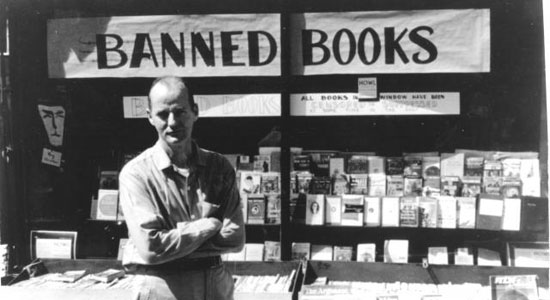As 2010 comes to an end, we are taking a look back at some of our favorite posts of the year by our guest editors.
 How do you best the anti-guitar-god bluster of arguably the most sonically bold and melodically sophisticated band of England’s shoegaze era? If you’re Swervedriver’s unflappable former leader, Adam Franklin, you don’t even try. You simply work off the various templates for greatness set forth by your former outfit, which, quite frankly, spewed out enough novel ideas to sustain a half-dozen indie-rock careers. Which brings us to Franklin’s latest, I Could Sleep For A Thousand Years (Second Motion), whose initial tracks were hammered out in New York late last year with his newly minted backup outfit, Bolts Of Melody. Sleep is Franklin’s most well-rounded collection to date, balancing the more laid-back guitar balladry and pop sensibilities of his last two solo albums with the ornery, volatile spark of vintage Swervedriver largely missing on those efforts. Franklin will be guest-editing magnetmagazine.com all week. Read our brand new Q&A with him as well as our 2009 Lost Classics post on Swervedriver’s Mezcal Head.
How do you best the anti-guitar-god bluster of arguably the most sonically bold and melodically sophisticated band of England’s shoegaze era? If you’re Swervedriver’s unflappable former leader, Adam Franklin, you don’t even try. You simply work off the various templates for greatness set forth by your former outfit, which, quite frankly, spewed out enough novel ideas to sustain a half-dozen indie-rock careers. Which brings us to Franklin’s latest, I Could Sleep For A Thousand Years (Second Motion), whose initial tracks were hammered out in New York late last year with his newly minted backup outfit, Bolts Of Melody. Sleep is Franklin’s most well-rounded collection to date, balancing the more laid-back guitar balladry and pop sensibilities of his last two solo albums with the ornery, volatile spark of vintage Swervedriver largely missing on those efforts. Franklin will be guest-editing magnetmagazine.com all week. Read our brand new Q&A with him as well as our 2009 Lost Classics post on Swervedriver’s Mezcal Head.
Franklin: The first thing that grabbed me about Lawrence Ferlinghetti‘s 1958 A Coney Island Of The Mind collection of poems when I came across it sometime in the late ’80s was the trippy black-and-white cover and the title. I’ve always found something intriguing about dilapidated and rundown fairgrounds—the faded glamour and the ghosts—and so this expression appealed to me. (The line itself was actually borrowed from a Henry Miller book, Into The Night Life: A Coney Island Of The Mind, about which I know nothing but which also has a cool cover in its original publication.) And in keeping with the lyrical title, each poem contains wonderful melodic turns of phrases—”when cadillacs fell thru the trees like rain”—delivered in a freeform style and expresses the way Ferlinghetti felt about the world “during a short period in the 1950s.” A Coney Island Of The Mind went on to become the largest-selling book by any living poet of the 20th century. Ferlinghetti is also known as a publisher; his City Lights house published Allen Ginsberg’s Howl, and the very first City Lights publication was Ferlinghetti’s 1955 collection of poems entitled Pictures Of The Gone World, which contained a bunch of poignant stuff delivered in attractively matter-of-fact style: “The world is a beautiful place/To be born into/If you don’t mind happiness/Not always being/So very much fun.” Don’t worry, they’re not making a 2010 Hollywood movie of it or anything.
Video after the jump.







